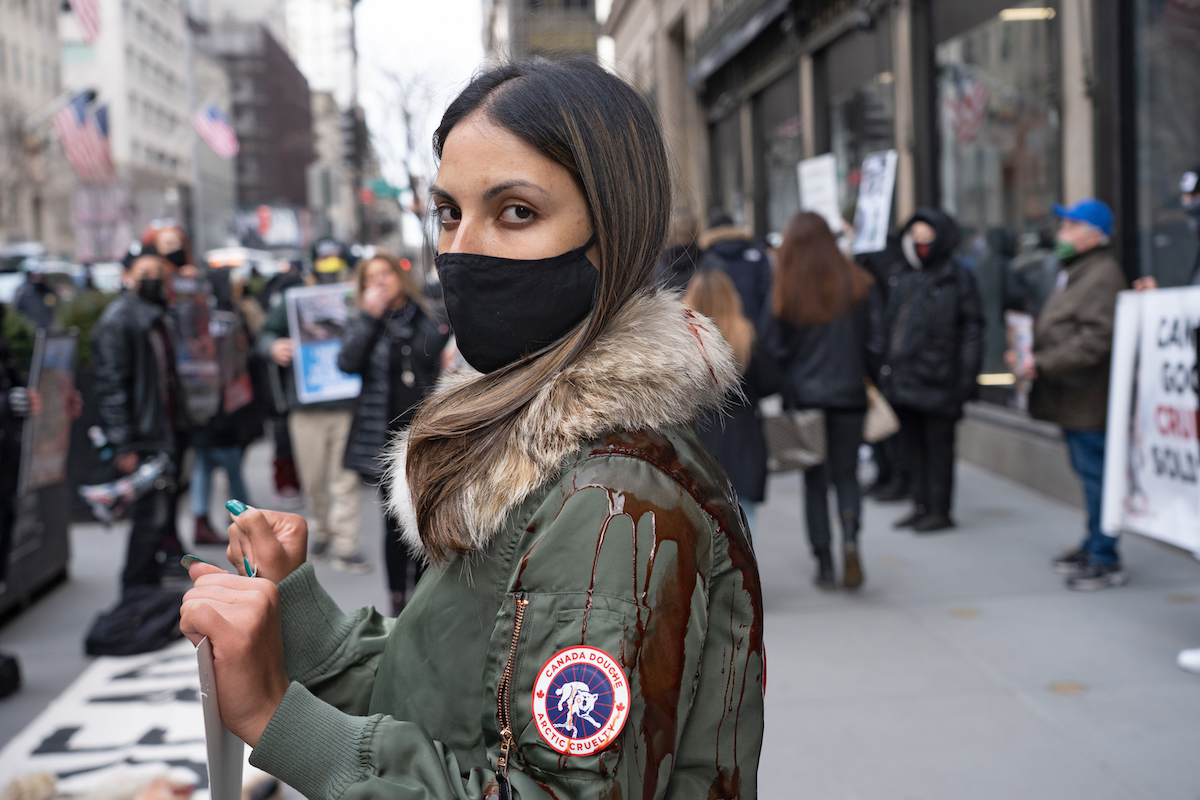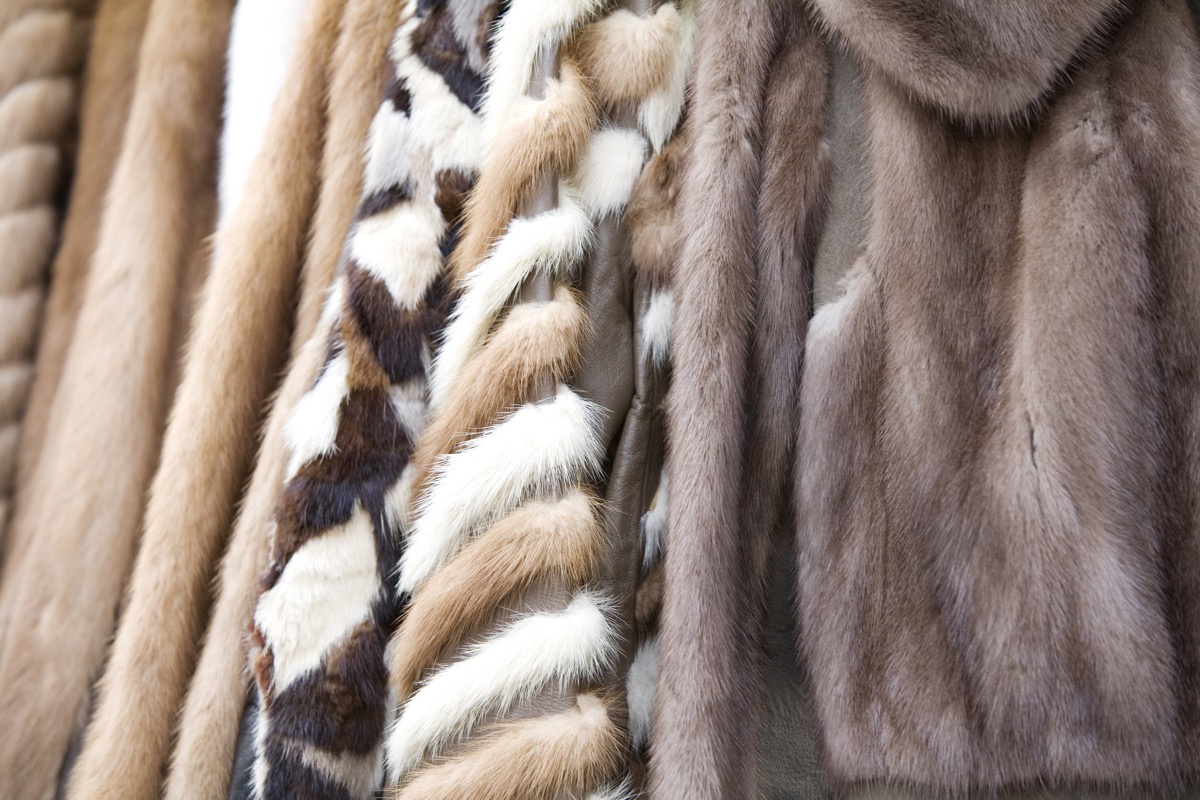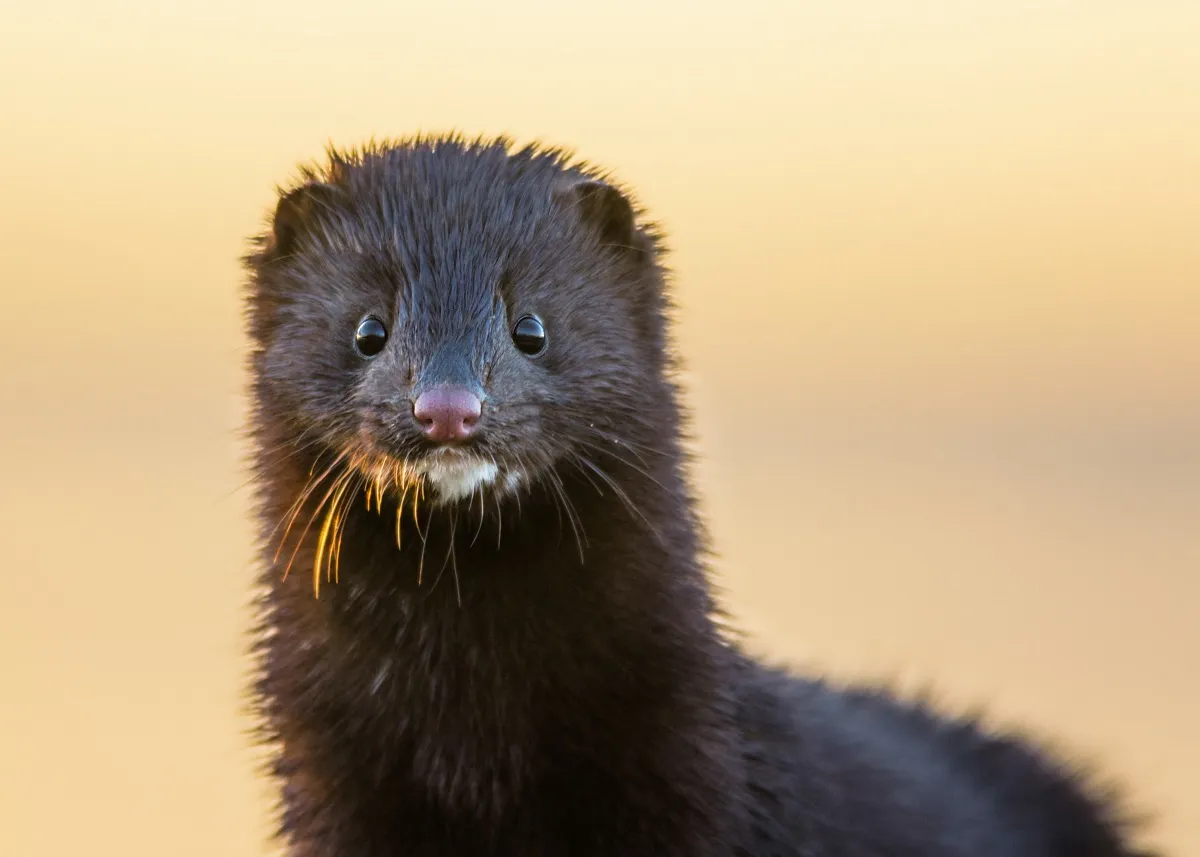With the public becoming more conscious about consumption, shoppers are putting more consideration into the impact a piece of clothing has on the environment than ever before. As a result, department stores coast to coast have started banning one particular item altogether, and this week, another major chain just followed suit. Read on to find out the details of what you won’t be able to buy at any major department store anymore. Neiman Marcus Group (NMG)—which includes Bergdorf Goodman, Neiman Marcus, and Neiman Marcus Last Call—announced on June 30 that it will eliminate all animal fur products from its shelves and will also close all of its fur salons by early 2023. “We are delivering an ultimate luxury experience for our customers and their evolving preferences. We are updating our assortment to feature multiple sustainable and ethical luxury fashion categories,” Neiman Marcus Group CEO Geoffroy van Raemdonck said in a statement. “It is clear the future is fur-free, and that includes the ultra-luxury space. As a leader in luxury retail, NMG has an opportunity to help build a better future for our industry.” The move is part of a shift in the company’s Environmental, Social, Governance (ESG) strategy, which includes enhanced investments and disclosures in the business’s ethics and sustainability efforts. In light of the fur ban, the department store chain plans to convert all of its current fur salons at Neiman Marcuses and Bergdorf Goodmans into luxury shopping experience salons instead. RELATED: For more up-to-date information, sign up for our daily newsletter. Neiman Marcus is the last major luxury department store to ban animal fur. Saks Fifth Avenue, Macy’s, Bloomingdale’s, and Nordstrom have all announced plans to go fur-free. High-end designers including Calvin Klein, Stella McCartney, Tommy Hilfiger, Donna Karan, Donatella Versace, Ralph Lauren, Prada, Coach, Diane Von Fustenberg, Gucci, and Michael Kors have all dropped fur from their designs, too. And this month, after years of pressure from critics, including People for the Ethical Treatment of Animals (PETA), coat company Canada Goose announced that they would stop buying fur and would eliminate its use on products by the end of 2022. The company had used wild coyote fur on its parkas, but PETA objected to how the coyotes are trapped and killed for their fur. RELATED: The Olympics Is Under Fire for Banning This at the Games This Year. California has already gone fur free by prohibiting fur sales, but in 2021, five other states—Rhode Island, Oregon, Connecticut, Hawaii, and New York—have also introduced legislation to ban fur sales as well, the Humane Society reports. A bill introduced in Washington state would ban the production of fur outright.ae0fcc31ae342fd3a1346ebb1f342fcb Even cities such as Wellesley, Massachusetts, and Minneapolis, Minnesota are considering fur sale ban bills of their own. RELATED: For more up-to-date information, sign up for our daily newsletter. The growing push for changes regarding production and sale of fur comes after outbreaks of COVID-19 at mink farms. In Nov. 2020, the European Centre for Disease Prevention and Control warned that when COVID-19 starts spreading on a mink farm “the virus can accumulate mutations more quickly in minks and spread back into the human population.” Minks also tested positive for the virus in Utah in the summer of 2020, prompting concern stateside. On July 1, a bipartisan bill was proposed in the U.S. House that would ban the farming of mink fur in the country as a whole in an effort to stop the spread of COVID, the Associated Press reported. If passed, the new bill would prohibit importing, exporting, transporting, selling, or purchasing mink nationwide. RELATED: The One Product Major Grocery Stores Are Starting to Ban.



